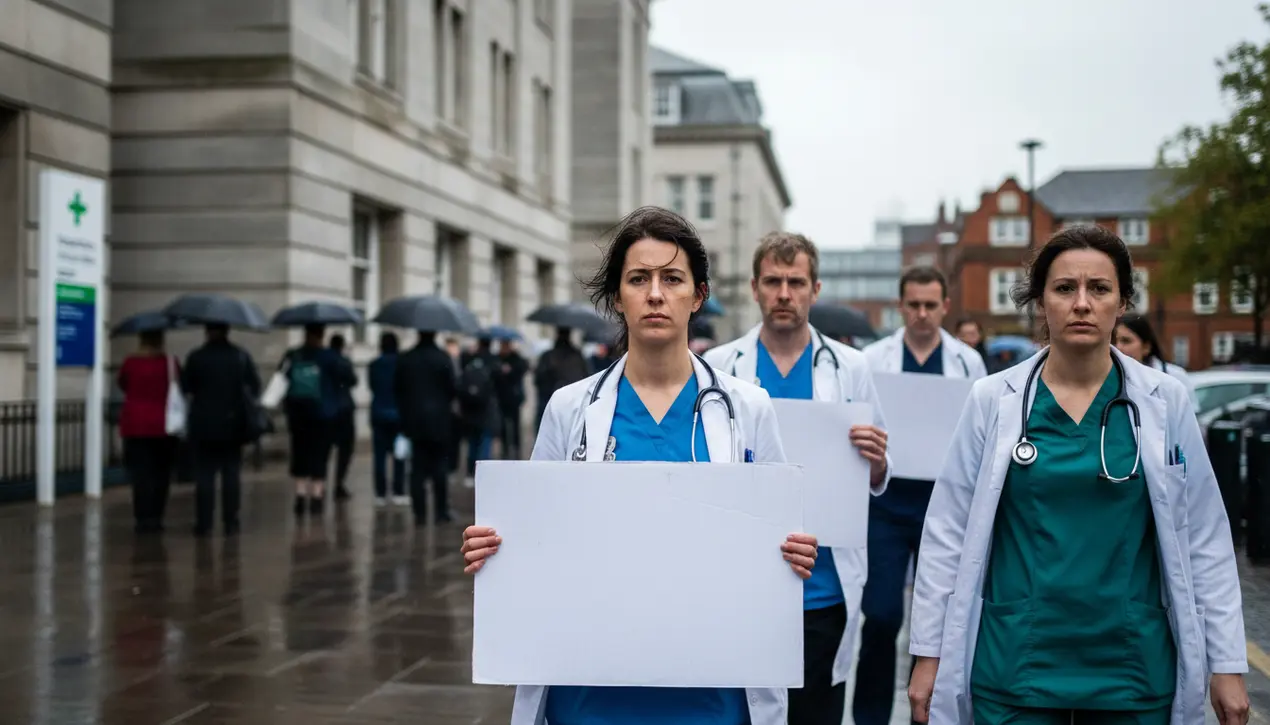
Politicsprotests & movementsLabor Strikes
Why the NHS doctors’ strikes look set to continue
AN
Anna Wright
2 hours ago7 min read
The entrenched stalemate between the British Medical Association and Health Secretary Wes Streeting over junior doctors’ pay has escalated into a protracted battle of ideologies, mirroring historical labour disputes where the fundamental valuation of public service collides with governmental fiscal restraint. As resident doctors commenced their latest industrial action—marking a staggering 50th day of walkouts since March 2023—the familiar tableau of medics in scrubs manning picket lines outside English hospitals belied a deeper, more systemic conflict over the very soul of the National Health Service.The BMA’s unwavering demand for ‘full pay restoration’ to reverse what it terms a ‘real-terms pay cut’ of over 26% since 2008 is not merely a negotiation point but a moral crusade, framed as essential to halting an exodus of burnt-out clinicians and safeguarding the future of universal healthcare. In contrast, Streeting’s adamant refusal, citing Treasury constraints and the absence of a ‘magic money tree,’ echoes the austerity-era rhetoric of his predecessors, yet is delivered with the sharpened political calculus of a new government determined to prove its fiscal credibility.This clash transcends mere numbers; it embodies a profound disagreement over social contract obligations, reminiscent of the 1980s miners’ strikes where state power confronted collective bargaining with lasting societal scars. Experts like Professor Sir John Aston, a former government chief scientific adviser, warn that the recurring strikes—estimated to have led to over 1.4 million cancelled appointments—are systematically eroding patient trust and creating a ‘hidden backlog’ of untreated chronic conditions that will burden the NHS for years. Meanwhile, the public’s sympathy, once firmly with underpaid frontline workers during the pandemic, now shows signs of fracturing under the weight of repeated disruptions, a dynamic Streeting’s team is keen to exploit by framing the BMA’s stance as ‘irresponsible and risky’ to patient safety.However, union strategists counter that the government’s intransigence ignores the long-term economic logic of investing in staff retention, given that each doctor trained represents a £500,000 public investment, and that reliance on costly locum agencies during strikes already drains billions annually. The political fallout is equally precarious: Streeting, a potential future Labour leader, cannot afford to be seen as capitulating to union demands, yet alienating the medical profession risks derailing his flagship NHS reform agenda before it even begins. With neither side showing any sign of compromise, and the next round of talks already stalled, this conflict appears destined to grind on—a wearying war of attrition where the ultimate casualties are not just disrupted care pathways, but the very principle of a health service funded by taxation and free at the point of use, now teetering under the weight of ideological intransigence and financial exhaustion.
#lead focus news
#NHS
#doctors strike
#pay dispute
#BMA
#Wes Streeting
#industrial action
Stay Informed. Act Smarter.
Get weekly highlights, major headlines, and expert insights — then put your knowledge to work in our live prediction markets.
Comments
Loading comments...
© 2025 Outpoll Service LTD. All rights reserved.